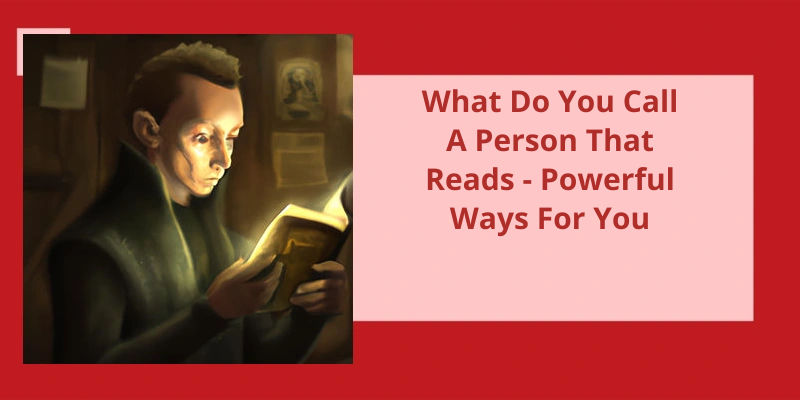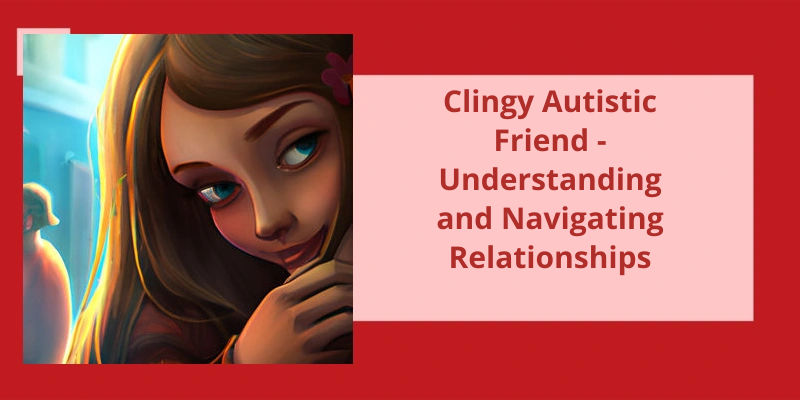Welcome to the world of wordsmiths, where readers become explorers of imagination, inquiry, and inspiration. In this age of technology and endless information, the art of reading holds a profound significance that transcends time and space. A person who devotes themselves to the pursuit of reading is no ordinary individual; they’re a connoisseur of stories, a seeker of knowledge, and a guardian of wisdom. They’re the intellectuals, the dreamers, the rebels, and the romantics. They may be known as bibliophiles, bookworms, or even word enthusiasts, yet their essence goes far beyond mere labels. This article will guide you through the powerful ways in which reading shapes and empowers the human mind, opening doors to unimaginable worlds, fostering empathy, and igniting personal growth. So, step into the realm of passionate readers and discover the transformative and awe-inspiring journey that awaits you.
What Is the Ability to Read Situations?
The ability to read situations is a crucial skill that enables individuals to navigate social interactions effectively. One aspect of this ability is empathic accuracy, which entails the capability to accurately interpret and understand the cues transmitted through words, emotions, and body language. This skill allows a person to go beyond surface-level information and tap into the underlying emotions and thoughts of others.
They can pick up on nonverbal signals such as facial expressions, body posture, and tone of voice, which provide valuable insights into a persons emotional state and intentions. This heightened awareness allows them to respond appropriately, adapting their own behavior and communication style to better connect with others. Consequently, individuals with empathic accuracy can build more meaningful relationships and establish trust with those around them.
By accurately reading and understanding the situation, individuals with this skill can anticipate the next steps or actions of those around them, allowing for proactive and effective problem-solving. This ability can be particularly valuable in professional settings, where the capacity to understand the dynamics of a situation can contribute to successful negotiations, conflict resolution, and teamwork.
It enables individuals to comprehend the broader social dynamics at play in a given situation, including power dynamics, group norms, and underlying tensions. With this knowledge, individuals can navigate complex social environments with greater ease, making informed decisions and avoiding potential pitfalls. This skill is particularly relevant in contexts such as leadership, where understanding the dynamics of a team or organization is crucial for effective decision-making and fostering a positive work environment.
It empowers individuals to go beyond surface-level information and perceive the underlying thoughts and feelings of those around them. This skill allows for more meaningful connections, better problem-solving, and a deeper understanding of social dynamics.
The Relationship Between Reading Situations and Making Accurate Judgments or Predictions
The relationship between reading situations and making accurate judgments or predictions is crucial for comprehension and understanding. When we encounter different reading situations, such as reading a novel, a news article, or a scientific research paper, we need to analyze and assess the text in order to make informed judgments or predictions.
By understanding the context, purpose, and audience of the reading material, we can make more accurate judgments about the author’s intentions, the reliability of the information, and the intended message. Additionally, actively engaging with the text through critical thinking and analysis helps us make predictions about the likely outcomes, conclusions, or developments that may arise.
Developing strong reading skills, including inference-making, drawing conclusions, and predicting outcomes, enables us to make informed decisions and interpretations based on the information presented in the text. These skills are valuable not only in academic settings but also in everyday life, as they allow us to navigate and understand the world around us.
Being able to read people is an essential skill that goes beyond mere observation or understanding facial expressions. It involves delving into the intricacies of human behavior and deciphering the unspoken nuances of communication. This skill is especially crucial for those in leadership roles, as it allows them to build strong connections, understand motivations, and effectively navigate diverse personalities. In the pursuit of greatness, being able to read people is a skill that can make all the difference.
Is Being Able to Read People a Skill?
Being able to read people is indeed a valuable skill. It goes beyond simply observing someones body language or facial expressions. It involves understanding their thoughts, emotions, and intentions. This skill allows us to connect with others on a deeper level and build meaningful relationships.
Leaders, in particular, can greatly benefit from this skill. When leaders can read people effectively, they can anticipate their needs, motivations, and concerns. This enables them to tailor their approach and communication style accordingly, increasing their influence and effectiveness. Additionally, leaders who can read people well are better equipped to build trust and foster a positive work environment.
Furthermore, this skill allows leaders to spot potential conflicts or issues before they escalate. By detecting subtle changes in behavior or attitude, leaders can address underlying problems and find suitable resolutions. It helps them navigate difficult situations and minimize the negative impact on their teams.
It’s beneficial for anyone, especially leaders, as it enables them to connect, understand, and influence others effectively. By harnessing this skill, leaders can create a positive work environment, make informed decisions, and manage conflicts or challenges efficiently.
In addition to these non-verbal cues, understanding someone also requires an astute intuition, an ability to perceive underlying emotions, and an interpretation of their behavior patterns. This nuanced skill of reading people goes beyond mere observation, offering insights into their thoughts, motivations, and intentions, even when they choose not to disclose them explicitly.
What Does It Mean to Be Able to Read People?
What does it mean to be able to read people? Reading another person goes beyond just listening to their words. It involves tuning into non-verbal cues and observing their body language, facial expressions, and tone of voice. When you read someone, you’re able to interpret these signals and gain insight into their thoughts, emotions, and intentions.
Reading people also involves understanding the social and cultural context in which they operate. Different cultures have unique ways of expressing themselves, and factors like upbringing, personal experiences, and beliefs can shape an individuals behavior and communication style. Being aware of these factors can help you read people more effectively.
It’s important to note that reading someone isn’t about making snap judgments or assumptions. Rather, it’s about gathering information and forming a deeper understanding of the person in question. It’s about recognizing patterns, identifying inconsistencies, and asking the right questions to uncover what lies beneath the surface.
However, it should be acknowledged that reading someone isn’t an exact science. People are complex beings with multiple layers, and even the most skilled readers can misinterpret signals or make incorrect assumptions. It’s crucial to approach the process with humility and an open mind, being willing to adjust your understanding as new information emerges.
The Role of Body Language in Reading People
- Facial expressions
- Eye contact
- Gestures
- Posture
- Hand movements
- Body positioning
- Mirroring
- Touch
- Microexpressions
- Vocal tone and pitch
- Personal space
- Overall body language cues
A person who possesses the unique ability to read minds is often referred to by various synonyms such as augur, channeler, clairvoyant, or diviner. These individuals possess an extraordinary capacity to sense and perceive the thoughts and intentions of others. Their innate gift enables them to tap into the realm of thoughts and unravel the mysteries that lie within the human mind.
What Does a Person Who Can Read Minds Called?
A person who possesses the exceptional ability to perceive and understand the thoughts and intentions of others is often referred to as a mind reader. However, there are several synonyms that can be used interchangeably to describe such individuals. One such synonym is augur, which suggests a person who can foresee and interpret the future through their ability to read minds. Another term that can be used is channeller, which implies an individual who can tap into another persons thoughts or emotions.
Additionally, the word clairvoyant can be used to describe someone who possesses the power of mind reading. This term indicates an individual with heightened psychic abilities, including the innate power to sense and perceive others thoughts. Diviner is yet another synonym that evokes the image of a person who possesses profound insight into the thoughts and intentions of others. This term suggests a person who’s skilled at uncovering hidden truths and decoding the innermost workings of someones mind.
It’s important to note that these synonyms don’t just capture the ability to read minds but also encompass various aspects of psychic perception and insight. These individuals possess an intuitive understanding and a heightened capacity to tap into the thoughts and emotions of others, providing them with a unique perspective into the human mind. Whether they’re referred to as augurs, channellers, clairvoyants, diviners, or any other synonymous term, their exceptional ability to read minds grants them an extraordinary level of understanding and perception that sets them apart from the average individual.
One’s ability to accurately perceive and understand the emotions of others, often referred to as being empathetic or possessing emotional intelligence, showcases a remarkable talent for reading people. This intuitive sense allows individuals to grasp the unspoken emotions and sentiments, effectively establishing a deeper connection with those around them.
What Is It Called When You’re Good at Reading People?
What’s it called when youre good at reading people? This intuitive sense, sometimes called being an empath or having emotional intelligence, is a major sign that youre excellent at reading others. Youre able to feel whats going on with people emotionally, even when it’s not spoken out loud. This powerful skill allows you to pick up on subtle cues, body language, and even unexpressed thoughts or feelings. It’s like having a sixth sense that enables you to understand and connect with others on a deeper level without needing words.
Being able to read people effectively comes with great advantages. You can navigate social situations more skillfully and respond appropriately to peoples needs and emotions. This ability can be particularly useful in professional environments, such as sales or leadership roles, where understanding and influencing others is crucial. It also helps in personal relationships, as you can better support and empathize with loved ones. People who possess this talent are often sought after for their insightful perspectives and ability to create harmonious and understanding relationships.
Additionally, being good at reading people allows you to be more attuned to your own emotions. Understanding how others emotions impact you can help you navigate your own feelings and react in a healthy and constructive manner. This enhanced self-awareness can lead to personal growth and improved interpersonal skills. It’s important, however, to set boundaries and practice self-care, as being highly attuned to others emotions can sometimes be overwhelming.
Developing your ability to read people is a lifelong process that requires observation, practice, and self-reflection. It begins with being present and attentive when interacting with others. Pay attention to non-verbal cues, such as facial expressions, body language, and tone of voice. Notice patterns in peoples behavior and try to understand the underlying emotions driving their actions. Reflect on your own emotional reactions and how they relate to those around you. Developing empathy and emotional intelligence takes time and effort, but the rewards in personal and professional relationships are invaluable.
The Role of Empathy in Reading Others
Empathy plays a crucial role in reading others. When we engage with a person’s emotions and perspectives, we can better understand their thoughts, feelings, and intentions. By empathizing with others, we develop a deeper appreciation for their experiences and can communicate and relate to them more effectively. This ability to read others cultivates stronger relationships, promotes better collaboration, and fosters a sense of understanding and connection. Empathy is a powerful tool that allows us to navigate social interactions with sensitivity and compassion.
der. These terms all capture the essence of someone who appreciates and enjoys reading on a regular basis. Whether it’s fiction, non-fiction, or any genre in between, these individuals find solace, knowledge, and entertainment within the pages of books. Reading isn’t simply a hobby for them; it’s a way of life. To delve deeper into the world of avid readers and their habits, let’s explore the benefits, routines, and recommendations that shape their literary journeys.
What Do You Call a Person Who Reads Everyday?
A person who reads on a regular basis can be referred to in a variety of ways depending on their level of dedication and preference. One commonly used term is “bibliophile,” which describes someone who’s a deep affection for books and enjoys collecting, reading, and appreciating them. Another term that encompasses a similar meaning is “bookworm,” which refers to an individual who spends a significant amount of time engrossed in books and often prefers solitary reading experiences.
For those with a strong passion for literature, one might call them a “literature lover.”. This term specifically highlights the persons affection for literary works and their enjoyment of delving into deep, thought-provoking texts. It can also imply a broader interest in literary analysis and criticism.
Lastly, an “avid reader” is someone who reads with great enthusiasm and dedication. This term emphasizes the level of commitment and frequency with which the person engages in reading. It suggests that this person prioritizes reading in their daily life and considers it an essential part of their routine.
Whether they’re called a bibliophile, a bookworm, a reader, a literature lover, or an avid reader, what truly matters is their commitment to the joy and enrichment that reading brings to their lives.
Source: What’re some other words to call a person who like to read?
Conclusion
In conclusion, exploring the question of what do you call a person that reads unveils a myriad of powerful ways that reading can enrich our lives. From calling them bookworms or literary enthusiasts to acknowledging the diverse range and depth of reading habits, it becomes evident that being a reader is more than just a label. It’s a gateway to expanding knowledge, finding solace, fostering empathy, and cultivating a lifelong love affair with words. Whether you classify yourself as a bibliophile, a voracious reader, or simply a curious soul, the act of reading unlocks endless possibilities for personal growth, intellectual stimulation, and connection with the world around us. So, embrace your identity as a reader and discover the transformative power that lies within the pages of a book.






